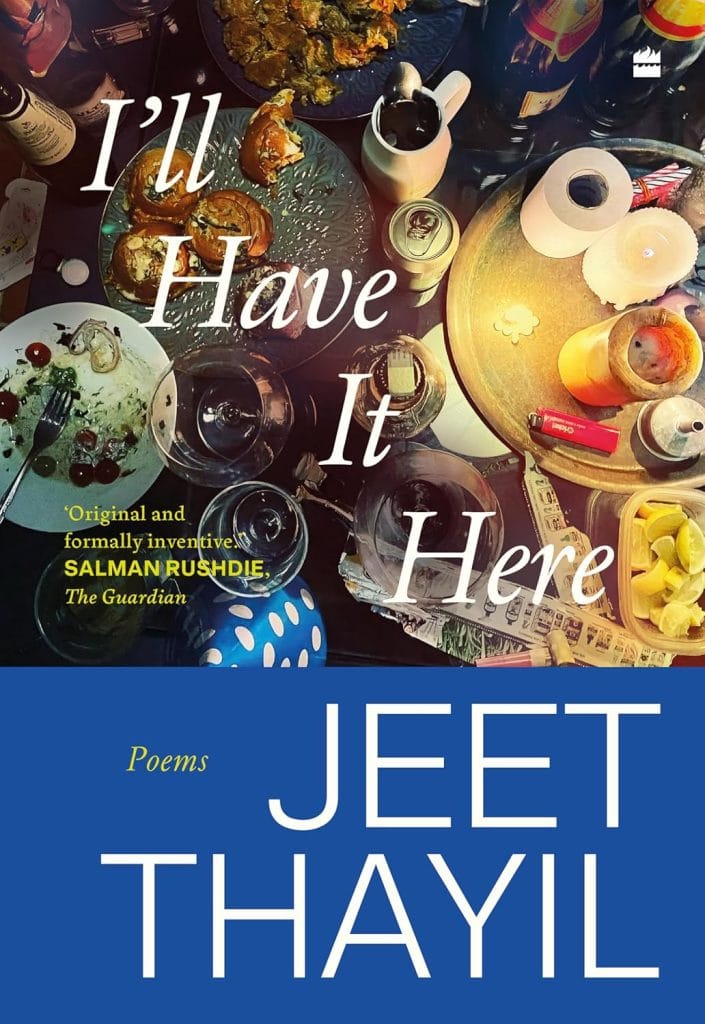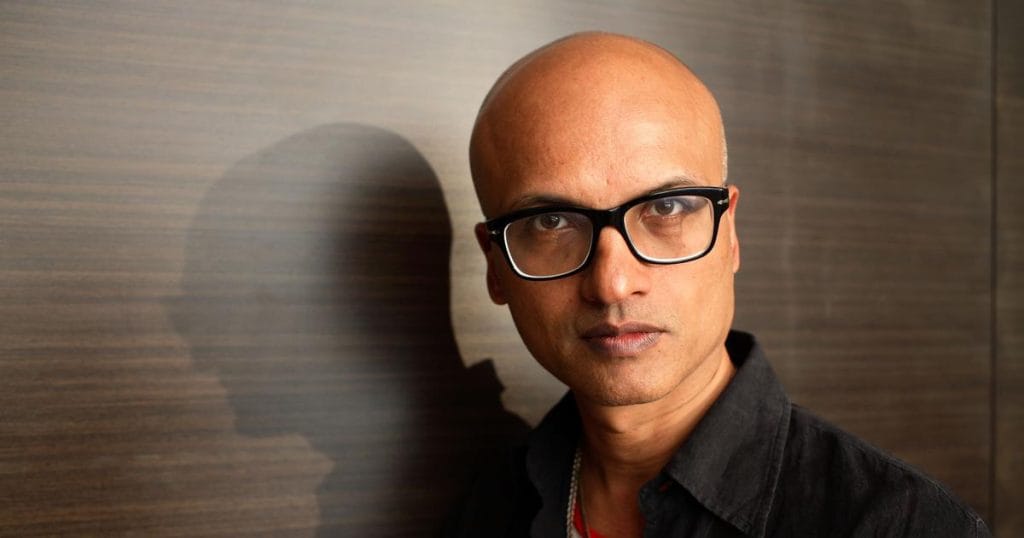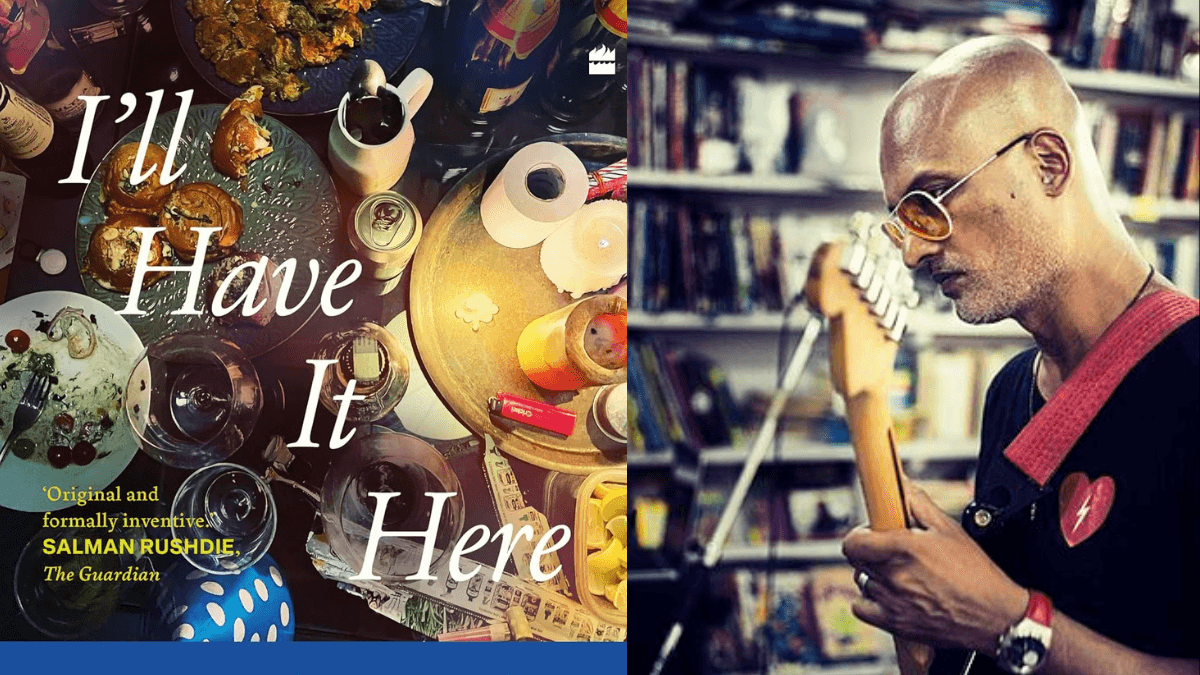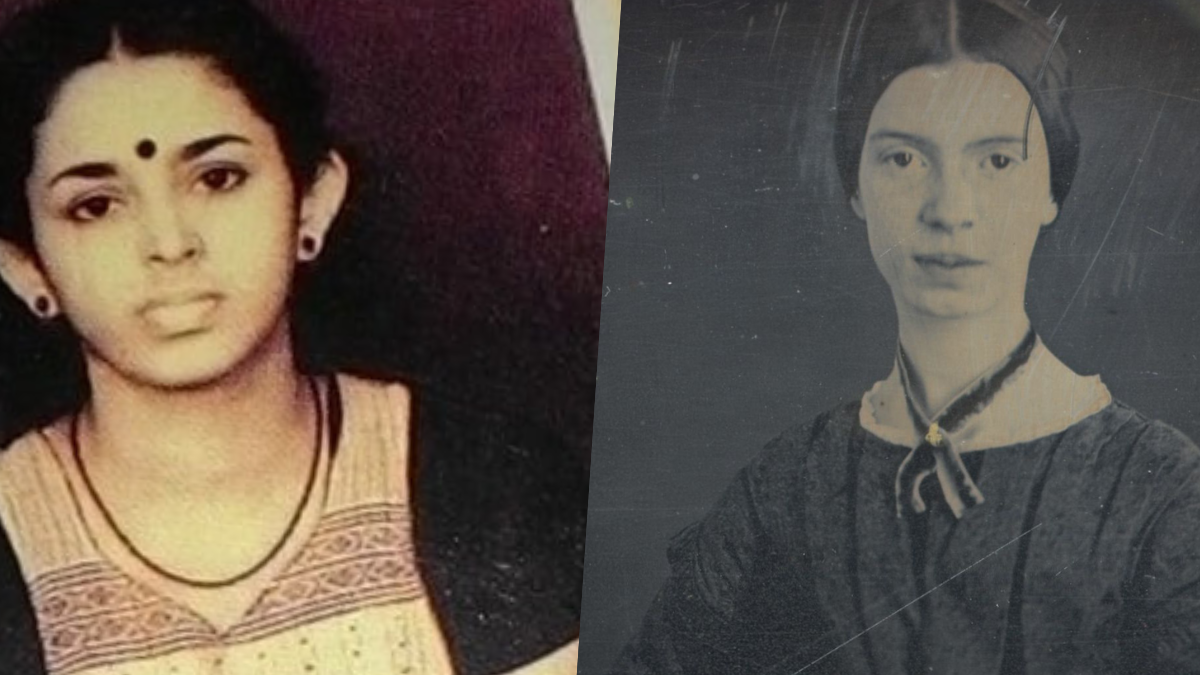Jeet Thayil’s latest poetry collection, “I’ll Have It Here,” arrives like an old flame at a cocktail party: striking, enigmatic, and unapologetically unforgettable. Sixteen years since “These Errors Are Correct,” which later went on to win the Sahitya Akademi Award, Thayil is back and quite surprisingly so, as most of his fans would agree. Thayil had announced in his previous collection, “These Errors Are Correct is the last full-length collection of poems I intend to publish… it seems to me that if you cannot equal or improve on your last book, it is better not to publish at all.” But sweeping pronouncements are swept away in time and Thayil is back to prove that poetry doesn’t just endure time—it sharpens, simmers, and thrives.
Published by Fourth Estate India, this collection is a reminder that the man knows how to wield words like knives with a sense of poetic humour. Jeet Thayil’s “I’ll Have It Here” is not just a poetry collection—it’s a homecoming of sorts for a poet who spent the past sixteen years in a kind of poetic hibernation.
A symphony of rhymes and wreckage
Thayil has always wielded words with precision, and here he sharpens them into a surgical tool. As usual, Thayil blends the personal with the political and brings grief, loss, and the crux of modern existence into the spotlight. His rhyme schemes are flamboyant and lyrical and stay with you like a nostalgic song from your childhood.

For example, in Natural History:
“Why do we live here?’
said the kid to a sky that rained fire.
‘To ride the river, to know desire
and live in the shiver,’
he said, moving higher“
Thayil is a master of formal poetry and has developed his art through the years. I’ll Have It Here is Thayil at his outrageous best and showcases his evolution as a poet, blending traditional forms with contemporary themes to create a collection that is both timeless and relevant.
Old forms, new tricks
His ardent followers would know very well of Thayil’s experiments with traditional forms in his previous collections, from Sestinas to Sonnets and even the Canzone. Thayil’s playful reverence for traditional poetic forms is evident throughout, especially in his ghazals, where Thayil’s mastery of rhyme and refrain shine:
“The climate’s in crisis, to breathe is to ache in India.
Too cold or too hot, we freeze and bake in India.
They police our thoughts, our posts, our clothes, our food.
The news, and the government, is fake in India.
Beat the students bloody, then file a case against them.
Criminals in power know the laws to break in India.“
Here, Thayil’s use of repetition and rhyme creates a rhythmic urgency, mirroring the pressing nature of the issues he addresses. In December 2020 Thayil takes us back in time to the traumatic events of the pandemic:
“Twenty-twenty is acuity of vision, a bane of the plague.
It’s the year we saw clearly the claim of the plague.
The poor and the powerless were first to be forgotten.
And last. How else do you play the game of the plague?
The corrupt and the cockroaches always will survive.
Home ministers too. Oh shame on thee, plague!“
In Stress-Test Ghazal, he mixes longing with irony, making even heartbreak feel stylish:
“Where are you tonight, spilling your thousand tears?
Here, where you are not, each night’s a thousand years.“
It’s the kind of poem that lingers like a kiss on your cheek by a long-lost lover, evoking both nostalgia and a sense of palpable grief.
India, through a cracked mirror
The most striking aspect of “I’ll Have It Here” is its unflinching and unapologetic gaze at contemporary India. If poetry is the art of reflection, “I’ll Have It Here” holds up a cracked mirror to India’s socio-political landscape.

Thayil doesn’t hold back in his critique of his contemporary India and goes all out, making it as explicit as it can get, as can be seen in the two ghazals quoted above.
In Wapsi, Thayil writes:
“…we sick bitches lick
our wounds and try to recuperate,
cow logic, cowed rhetoric,
cowardly assassinations replicate
The ways God dons armour.”
Thayil’s wordplay with “cow logic,” “cowed rhetoric” and “cowardly assassinations” is an exhibition of not just his mastery of words but also feels like a sly wink to the reader to show that he can still be humorous even when dealing with subjects that are politically charged.
In a kafkaesque turn of events, Thayil conjures up Gandhi as a talkative, still slender house gecko.
In his conversation with Gandhi, Thayil remarks:
“The carving knife you used
Like some tiny god
Still drips blood on the old floorboard.”
He proceeds:
“You expect things to change, but what has?
Well, we pray to screens.
And they’re still at it, your assassins,
In the name of love and fame.
A people divided by circumcision.
Or not. Veils or not. Meat or not.
You expects things to change the same“
His use of irony and humour is bold and delightfully rebellious, especially in his politically charged ghazals. Thayil doesn’t just critique—he cooks up a symphony of outrage, each verse being a symbol of defiance. He’s very much a part of the chaos he describes, which makes his critiques all the more poignant.
Between grief and laughter
For all its political firepower, “I’ll Have It Here” is also a deeply introspective collection. Thayil grapples with loss, time, and the human condition in ways that feel raw, unfiltered, and unhinged.
Take Twenty-Four:
“I loved someone
And didn’t say.
Love grew wings
And flew away.
Now, each day,
Love, I say.
Too late. My dear
Doesn’t hear.“
Despite its simplicity, each line break is imbued with a sense of longing and loss. It’s a perfect example of what poetry can achieve, making the most with the least amount of words.
Late Elegy and Mind If I Smoke are two other deeply personal poems about his late wife.
“Dawn’s late today.
Time moves like a broken mind
Calmed by lithium.
What can I say
To one I lost and cannot find
Through sixteen years of tedium.“
Thayil lays his grief bare, and it is poignant, piercing, and palpable. If anything, Thayil’s poems are a hallucinatory trip taking us through the dark alleyways of his mind, into an old bar where we find him alone, inviting us for a drink with him.
Should you have it here?
The brilliance of “I’ll Have It Here” lies in its contradictions. It’s both deeply personal and strikingly political. It’s painful yet compassionate, traditional yet modern. Reading it feels like being in a conversation with Thayil himself—if Thayil were holding a martini glass and dropping truth bombs between sips, brooding about times bygone, introducing us to characters from Dom Moraes, Ibn Battuta, and even Gandhi himself.
Pascale Petit aptly calls this collection “bursting with intoxicating images,” but what Petit doesn’t mention is the hangover: these poems stick with you, for better or worse. Thayil doesn’t just write poetry—he reinvents it, shakes it up, and serves it neat.




